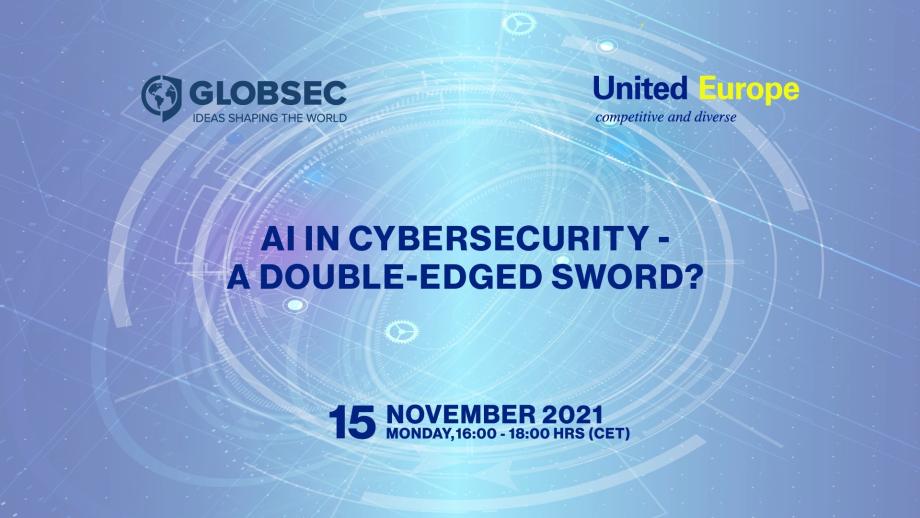AI in Cybersecurity: A double-edged sword? Event Recap

Since the start of the COVID-19 pandemic, the number of cyberattacks has increased dramatically. With data security compromised more than ever, more and more companies are turning to AI for digital protection. A new wave of AI-powered solutions can keep malicious actors on their toes while giving IT teams much-needed relief. However, AI is far from being an invincible solution for all security-related incidents in the digital space. This is due to the inherent limitations of AI at the current stage, as well as the fact that malicious actors are increasingly using AI themselves to carry out attacks.
To discuss this topic, United Europe and GLOBSEC organized an event at the Lithuanian Permanent Representation to the European Union. In a two-round debate, James Candon (United Europe) and Roland Freudenstein (GLOBSEC) invited guests to share their views on the topic. In the first panel, challenges for AI in cybersecurity were discussed with; Raquel Jorge, Policy Analyst on the technology and digital agenda at Elcano Royal Institute; Dr. Rytis Rainys, Director of the National Cybersecurity Centre under the Lithuanian Ministry of National Defence; Mikhail Kokorich, a space entrepreneur and Rastislav Janota, Director of the National Cyber Security Center in Slovakia. While the challenges are getting bigger, the panel members agreed the advantages outweigh the disadvantages when looking at the future of AI.
In the second panel, solutions and strategies were discussed with; Dr. José-Marie Griffiths, President of Dakota State University and recently a Commissioner on the US National Security Commission on Artificial Intelligence; Riho Terras, Member of the European Parliament and the Head of the EPP Group National Delegation for Estonia and Andrew Lee, Head of Government Affairs at ESET. A multi-stakeholder approach that includes corporations, academia, and institutions is the basis for a strategy that captures and solves future problems. After the fruitful debate, refreshments were offered to create an opportunity to discuss bilaterally.